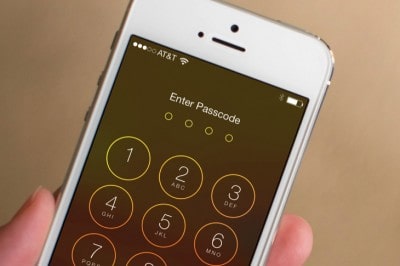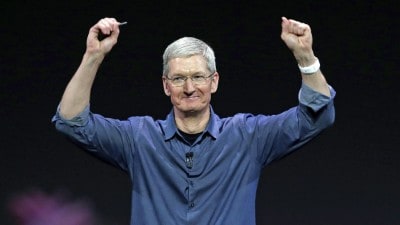
In an open letter to Apple customers, Tim Cook, the CEO of Apple, brought the world’s attention to a current legal matter between Apple and the FBI over iPhone users’ right to privacy. The letter explains that the FBI wants Apple to create a backdoor for accessing an iPhone so that it can get information for an investigation, and Apple has said no.
As always, there is much more to the story and Apple has valid concerns for not wanting to comply with the FBI’s request (well, demand). Magistrate Judge Sheri Pym, a former federal prosecutor, gave the order at the FBI’s request after a 40-page court filing was submitted to the judge without Apple’s involvement. The judge used the All Writs Act from 1789 that says to “issue all writs necessary or appropriate in aid of their respective jurisdictions and agreeable to the usages and principles of law,” which is extremely vague and is clearly being extended to fit this request from the FBI.
Why does the FBI need Apple to create a software that overrides its security features? They also have valid reasons for wanting Apple to breach their own security, but it’s not enough to convince Apple or the American people that it’s worth the risks. The San Bernardino shooting in December last year involving a couple, Syed Farook and Tashfeen Malik, left a lot of questions unanswered and one iPhone unlocked and encrypted. The FBI has been trying to unlock the phone ever since, but has struggled to get the right passcode combination and can only try a certain number of combinations in a period of time before the iPhone deletes all of the information from the phone. The Bureau is hoping to get access to the phone to gain information about who the couple was contacting before and after the shooting.
Though the Justice Department is requesting that Apple create an operating system with a “unique identifier” so that it can only be used for the one iPhone, Cook states that “while the government may argue that its use would be limited to this case, there is no way to guarantee such control.” In their open letter, they explain that it would essentially be the same as making a “master key” to millions of locks, since the software could be adapted to be used on all iPhones everywhere. Additionally, Apple is concerned that not only would the FBI have the software in their hands, but they would also share it with other nations to assist in their investigations. Anyone that has access to the operating system poses the risk of revealing the information.

What’s even more chilling about the demand is when Cook says, “The government could extend this breach of privacy and demand that Apple build surveillance software to intercept your messages, access your health records or financial data, track your location, or even access your phone’s microphone or camera without your knowledge.” He essentially says that complying with their demand would be a slippery slope, eventually leading to more intense and seriously overreaching requests from the government.
This attempt to breach American’s security is frightening and clearly an overstep on the FBI’s part. Cook affirms that he is not sympathetic to the privacy of a terrorist but, rather, is concerned for the “very freedoms and liberty our government is meant to protect.” The implications of this demand are that the Patriot Act, which is an obstruction of the virtual privacy of all Americans and was signed by President Bush in 2001, is simply not enough anymore and that the government is slowly attempting to completely override the only privacy Americans have left. So, although it may lead to legal battles, Apple is taking the necessary precautions to defend its consumers and our right to privacy.
You can read Tim Cook’s open letter here and rejoice in his decision to challenge the order.
This article (FBI Asks Apple To Breach User Confidentiality; Tech Company Refuses) is free and open source. You have permission to republish this article under a Creative Commons license with attribution to the author and TrueActivist.com


